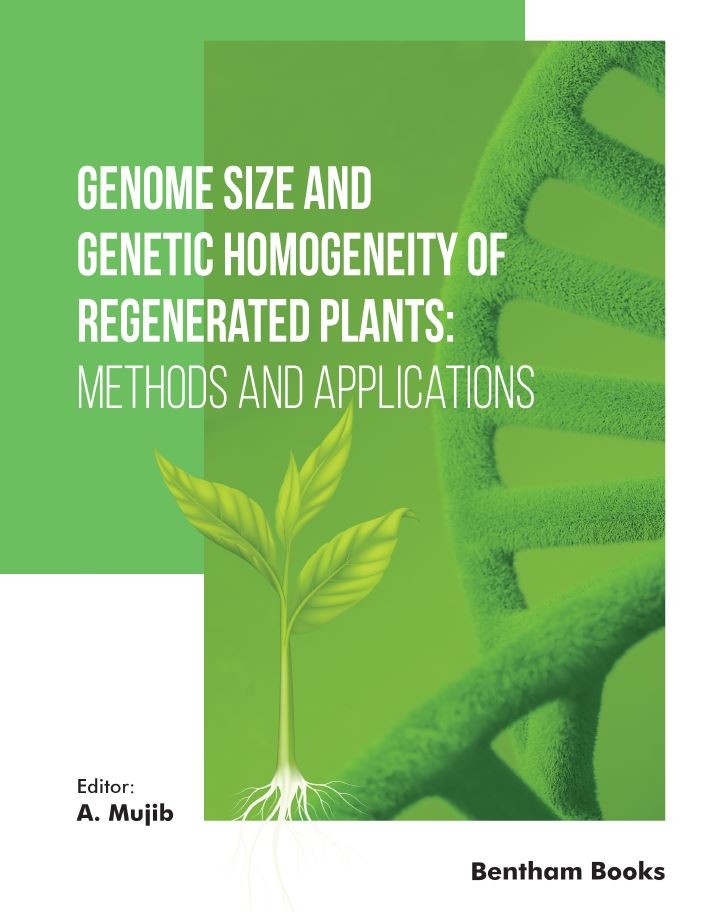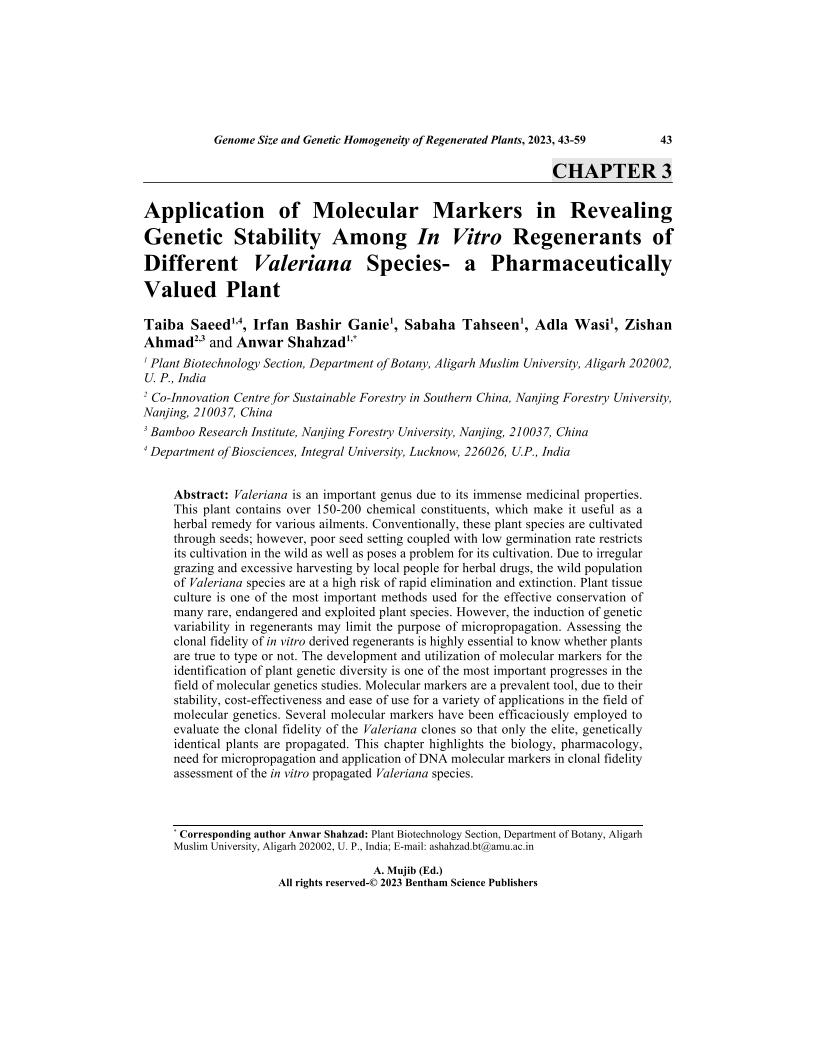Application of Molecular Markers in Revealing Genetic Stability Among In Vitro Regenerants of Different Valeriana Species- a Pharmaceutically Valued Plant

- Authors: Taiba Saeed1, Irfan Bashir Ganie2, Sabaha Tahseen3, Adla Wasi4, Zishan Ahmad5, Anwar Shahzad6
-
View Affiliations Hide Affiliations1 Plant Biotechnology Section, Department of Botany, Aligarh Muslim University, Aligarh 202002, U. P., India 2 Plant Biotechnology Section, Department of Botany, Aligarh Muslim University, Aligarh 202002, U. P., India 3 Plant Biotechnology Section, Department of Botany, Aligarh Muslim University, Aligarh 202002, U. P., India 4 Plant Biotechnology Section, Department of Botany, Aligarh Muslim University, Aligarh 202002, U. P., India 5 Co Innovation Centre for Sustainable Forestry in Southern China, Nanjing Forestry University, Nanjing, 210037, China 6 Plant Biotechnology Section, Department of Botany, Aligarh Muslim University, Aligarh 202002, U. P., India
- Source: Genome Size and Genetic Homogeneity of Regenerated Plants: Methods and Applications , pp 43-59
- Publication Date: September 2023
- Language: English
Application of Molecular Markers in Revealing Genetic Stability Among In Vitro Regenerants of Different Valeriana Species- a Pharmaceutically Valued Plant, Page 1 of 1
< Previous page | Next page > /docserver/preview/fulltext/9789815165555/chap3-1.gif
Valeriana is an important genus due to its immense medicinal properties. This plant contains over 150-200 chemical constituents, which make it useful as a herbal remedy for various ailments. Conventionally, these plant species are cultivated through seeds; however, poor seed setting coupled with low germination rate restricts its cultivation in the wild as well as poses a problem for its cultivation. Due to irregular grazing and excessive harvesting by local people for herbal drugs, the wild population of Valeriana species are at a high risk of rapid elimination and extinction. Plant tissue culture is one of the most important methods used for the effective conservation of many rare, endangered and exploited plant species. However, the induction of genetic variability in regenerants may limit the purpose of micropropagation. Assessing the clonal fidelity of in vitro derived regenerants is highly essential to know whether plants are true to type or not. The development and utilization of molecular markers for the identification of plant genetic diversity is one of the most important progresses in the field of molecular genetics studies. Molecular markers are a prevalent tool, due to their stability, cost-effectiveness and ease of use for a variety of applications in the field of molecular genetics. Several molecular markers have been efficaciously employed to evaluate the clonal fidelity of the Valeriana clones so that only the elite, genetically identical plants are propagated. This chapter highlights the biology, pharmacology, need for micropropagation and application of DNA molecular markers in clonal fidelity assessment of the in vitro propagated Valeriana species. nbsp;
-
From This Site
/content/books/9789815165555.chap3dcterms_subject,pub_keyword-contentType:Journal -contentType:Figure -contentType:Table -contentType:SupplementaryData105

